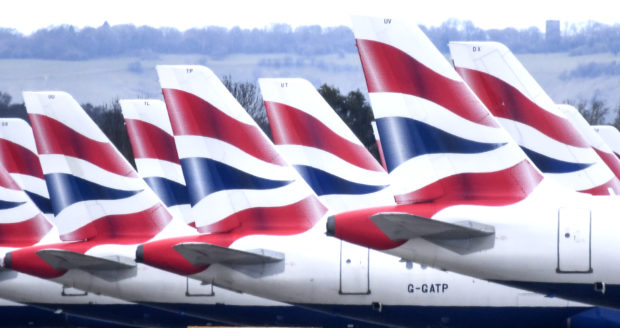
If it’s true that a society is judged by how it treats the most vulnerable then, when this crisis eases, many will be judged harshly.
When the virus has been, more or less, safely contained, when the lockdown is lifted and a smidgen of normality starts to return to our daily lives, there will be a long list of companies and individuals who have shown a total disregard to their staff and customers.
Many have lacked empathy and moral fibre at a time of crisis and completely failed in their duty of care.
These are organisations providing essential services who have shown no interest in the greater good but only their own bottom lines.
It’s the usual suspects, give or take the odd Brexit brewing giant and failed pop stars’ fashion house, who in times of trouble, without fail, manage to thicken the mud and make things even more intolerable.
In short, our banks and insurers.
Both, it seems, allowed to set their own rules and change them as and when they see the need.
Huge financial institutions who, when the going gets tough, appear to have the power to leap free from the shackles of regulation when it suits them.
It’s not only our financial institutions, of course. The wing wizards in charge of our airlines have no problem in shedding thousands of staff when they are hunkered down in the uncertainty of lockdown.
BA, Ryanair, Jet2.com, easyJet and, of course, Virgin Atlantic, might all be currently grounded, and could be for some time, but passengers are still struggling to reclaim on cancelled flights and holidays.
By not offering full cash refunds, delaying payments or encouraging customers to accept vouchers instead, it’s reckoned they are sitting on £7 billion in unpaid refunds and the problem is so serious that the Commons Transport Committee is to investigate.
We have billionaire Richard Branson asking for taxpayers to bail him out, 12,000 job losses at BA, Ryanair axing 3,000 staff, and TUI this week suddenly cancelling all their flights for six weeks, as well as pulling the plug on their cruises till July, grounding the holiday plans of 900,000 UK holidaymakers.
It’s hard to feel sorry for the airlines, but before we judge them too harshly, consider this.
Our aviation industry turns over £60 billion annually, contributing more than £22 billion to our GDP. It employs, directly and indirectly, tens of thousands of workers. Without them, lockdown or not, our hospitality and tourism industries would be destroyed, the economic damage to the nation would be incalculable.
Yes, they need their wings clipped, the law tightened up, but if Britain is to lift itself out of lockdown and cataclysmic recession, it needs to be prepped and readied for take-off as soon as soon as practically possible.
We’ll need a holiday after this is over, but the problem is there might not be any carriers left to fly with.

Enjoy the convenience of having The Sunday Post delivered as a digital ePaper straight to your smartphone, tablet or computer.
Subscribe for only £5.49 a month and enjoy all the benefits of the printed paper as a digital replica.
Subscribe